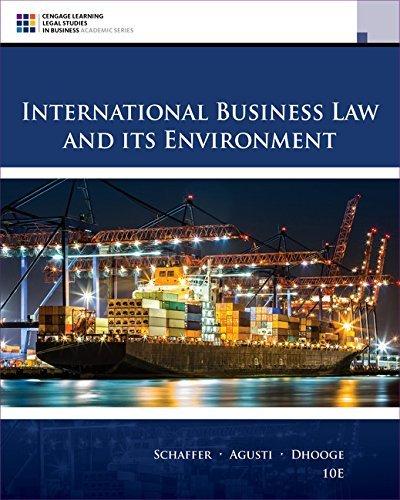Cometals, a New York commodities trading corporation, purchased 2,000 tons of Kenyan red beans from Tarbert Trading,
Question:
1. Import/export transactions usually require much more documentation than domestic transactions. These include detailed invoices, packing lists, shipping and insurance documents, and specialized certificates. In this case, a "certificate of origin" was required by the government of Columbia before the goods could be imported. Does it refer to the country from which the goods were shipped or where they were grown or made? Why do you think Columbia required a certificate of origin? What is its purpose?
2. Suppose that the beans had arrived in Columbia and were then stopped by Columbian customs authorities because of a fraudulent certificate. What do you think might have happened to the beans? What would the risk have been to Cometals and Tarbert? What if the Columbian buyer had already paid for the beans?
3. Evaluate and discuss the conduct of Cometals and Tarbert. Fraudulent documentation is not uncommon in international trade, especially when parties do not have a history of business together. What are the lessons to be learned by all parties?
Fantastic news! We've Found the answer you've been seeking!
Step by Step Answer:
Related Book For 

International Business Law And Its Environment
ISBN: 9781305972599
10th Edition
Authors: Richard Schaffer, Filiberto Agusti, Lucien J. Dhooge
Question Posted:





